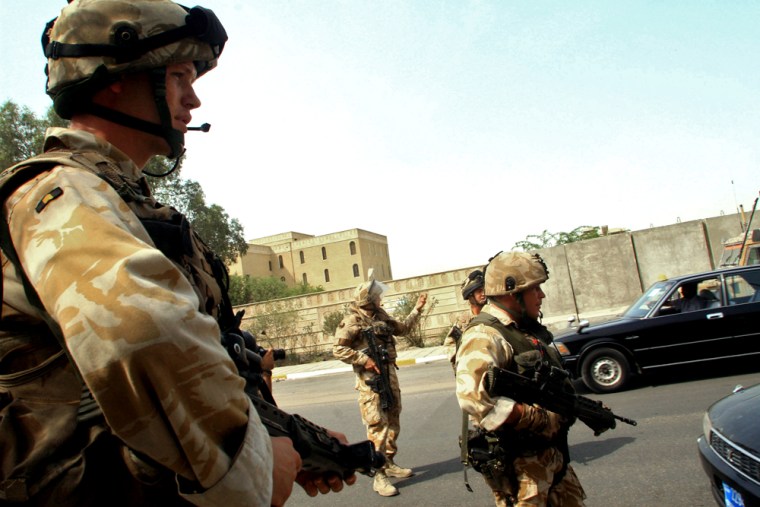Britain’s top army commander said the presence of British troops in Iraq was exacerbating security problems on the ground and they should be withdrawn soon.
In an interview with the Daily Mail newspaper, Gen. Sir Richard Dannatt criticized postwar planning for the 2003 U.S.-led invasion and said the British presence in Iraq also hurt British security interests abroad, which British Prime Minister Tony Blair has repeatedly denied.
The public criticism by Dannatt, extraordinary for a serving officer of his rank, was seized on by critics of the war in Iraq and Dannatt conducted a series of television and radio interviews on Friday trying to calm the storm he had triggered.
He insisted he had said “nothing new or noteworthy” in his interview with the tabloid and was just repeating policy.
“It was never my intention to have this hoo ha, which people have thoroughly enjoyed overnight, trying to suggest there is a chasm between myself and the prime minister,” he told the British Broadcasting Corp.
In the Daily Mail interview he said: “I think history will show that the planning for what happened after the initial successful war fighting phase was poor, probably based more on optimism than sound planning.”
He continued: “I don’t say that the difficulties we are experiencing round the world are caused by our presence in Iraq but undoubtedly our presence in Iraq exacerbates them.”
Britain should “get ... out sometime soon because our presence exacerbates the security problems,” Dannatt said.
Tries to clarify comments
In his subsequent radio and television interviews, he said he was not suggesting an immediate withdrawal.
“I’m a soldier. We don’t do surrender. We don’t pull down white flags. We’re going to see this through,” he said.
“But we’ve got to get on with it. We can’t be there for years and years,” Dannatt said.
His remark that British forces exacerbate violence in some parts of Iraq was simply stating the obvious, he said. He added that in places, like Basra, they were still providing benefits.
But he also said ambitions had to be lowered from the expectations of a few years ago, and were now mainly focused on keeping Iraq from splitting up.
“We had high hopes,” he told the BBC. “It has proved more difficult for a whole variety of reasons and therefore we’re pressing on to get the best result we can. And it may not be that result that we originally wanted to get.”
British generals have said in the past that they hope to cut their force in Iraq — now roughly 7,000 troops — in half by the middle of next year. They have turned over two of the four provinces they patrol to Iraqis.
“We’re going to complete that process and ... the number of troops deployed there will reduce,” Dannatt said. Britain has lost 119 troops killed.
Political fallout
Some of his remarks in the Daily Mail could have political repercussions on both sides of the Atlantic.
The Iraq war is unpopular in Britain, and Iraq’s worsening violence is a political issue for President Bush who faces a congressional election next month.
Blair’s office did not comment directly on the interview, issuing a statement saying British troops were in Iraq at the invitation of an elected government there.
“Britain is an important ally. The withdrawal of troops is something that is discussed in open forums in democracies but we are not going to make any comments,” the spokesman for the U.S. military in Baghdad, Lt Col. Christopher Garver, said.
Blair has insisted that British troops must remain in Iraq until the Iraqi government is able to take control of security.
Dannatt said Britain would not abandon Iraq to U.S. forces. Britain was the only country to send a large contingent to back the United States during the 2003 invasion.
“We have got to stand together with our American allies. I am on the record publicly as saying we are standing shoulder to shoulder with the Americans,” he said.
